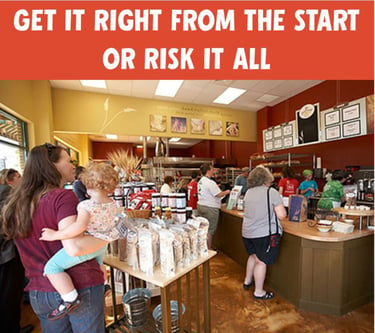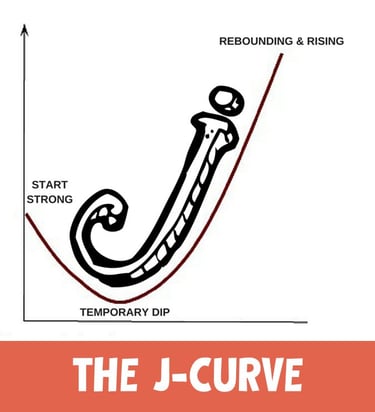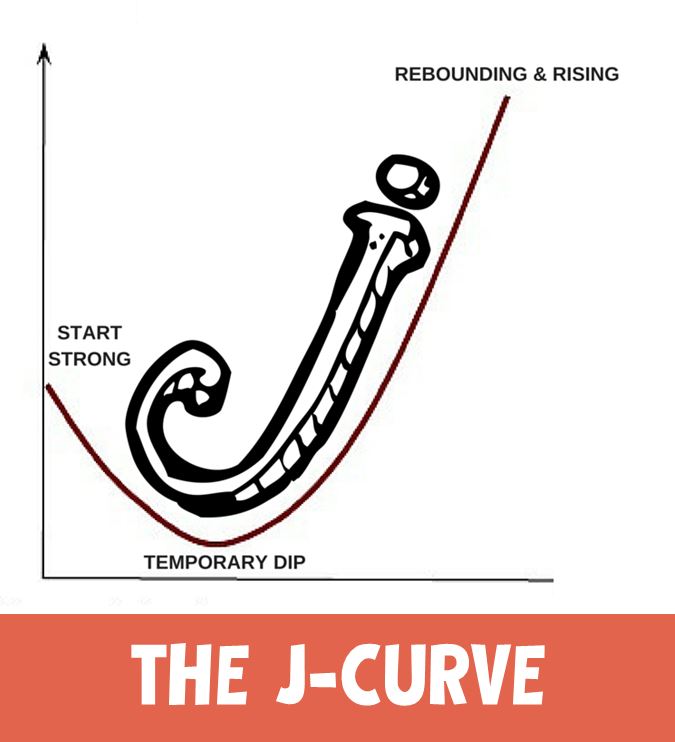The old story about first impressions being lasting and most important is true.
 And it is especially true in business. It is very difficult to recover once you have created a bad experience for a customer. That’s why your opening must be on point.
And it is especially true in business. It is very difficult to recover once you have created a bad experience for a customer. That’s why your opening must be on point.
If their experience is good, customers keep coming back. If it isn’t, they might try again but if the second time is bad? Forget it. And word-of-mouth is very powerful. How many customers do you lose from a single customer’s bad experience? The fastest way to kill a struggling business is negative word-of-mouth advertising.
The J-Curve
All businesses open on a J-curve, even if the exact shape and size of the curve is industry specific. Deep, shallow, long, short; the J-curve pattern almost always holds.  What is the J-curve? Sales open with a bang. They are as high in that first month when you are the shiny new toy in town as they will likely be for a year. Most new businesses see sales drop after that, but then they start to pick back up after a couple of months, eventually rising above the initial start level (hence the “J” curve).
What is the J-curve? Sales open with a bang. They are as high in that first month when you are the shiny new toy in town as they will likely be for a year. Most new businesses see sales drop after that, but then they start to pick back up after a couple of months, eventually rising above the initial start level (hence the “J” curve).
If the pattern starts stronger based on a solid first impression, it likely stays that way. The height and depth of the curve is very dependent on getting it right the first time. If you get it right, then your opening peak is likely a high one. And, no matter what else happens, if you are doing a curve off of a higher number the trough is not as low. And, likely, the trough is shorter-lived.
Get it right the first time. It isn’t just a good life lesson. It is supported by data as a very strong business philosophy.
Read more about opening day:
- Why Should I Start My Small Business With a Big Grand Opening?
- Opening Day Marketing Is Crucial for a Local Retail Business
- How Do I Choose the Opening Day Breads for My New Whole Wheat Bakery?
Image credit: "J-curve" by Doorroom - Own work. Licensed under CC0 via Wikimedia Commons. Modified as follows: text removed and text overlay.




